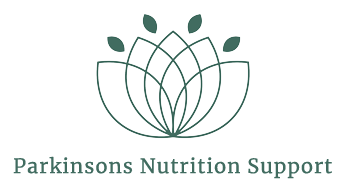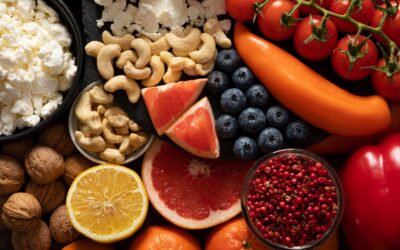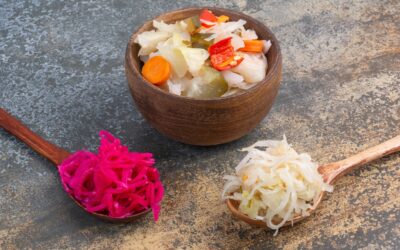When working with clients diagnosed with Parkinson’s disease, one of the key areas I discuss with my clients is how certain vitamins, minerals and nutrients support dopamine production and energy production.
Essential Vitamins for Parkinson’s Disease
For example, vitamin B6 is a co-factor in the conversion of tyrosine into dopamine. Iron is an essential mineral involved in the synthesis of dopamine, as it helps convert tyrosine into L-DOPA, which is a precursor to dopamine. Zinc is another mineral that acts as a cofactor for enzymes involved in dopamine production.
It is also possible assess vitamin and mineral deficiencies via comprehensive blood testing to assess whether supplementation may be beneficial to help support dopamine and energy production.
Neuroprotection and Brain Health
Certain foods have been studied for their potential neuroprotective effects. Walnuts, rich in omega-3, and pistachios, which contain antioxidants, are examples of such foods.
Additionally, spices like turmeric and Ceylon cinnamon might also offer health benefits. It’s important to focus on a diet rich in fruits and vegetables, as they contain antioxidants that may protect brain health.
Dietary Considerations for Medication Effectiveness
For those taking Parkinson’s medications like carbidopa/levodopa, dietary adjustments can be crucial. High-protein meals, particularly those rich in meat, fish, eggs, or dairy, may interfere with medication absorption. It’s recommended to take levodopa 30-60 minutes before a meal or 1-2 hours after to minimize interactions and to help smooth out “on” and “off” periods.
Managing Parkinson’s Symptoms through Diet
Adjusting your diet can also ease common Parkinson’s symptoms. For digestive difficulties, increasing fluid intake and consuming fibre-rich fruits and vegetables may be beneficial. If you experience fatigue, lowering sugar intake and opting for healthier snacks, such as fruit may help maintain energy levels.
Nutritional choices play a pivotal role in managing Parkinson’s disease. By focusing on a diet rich in specific vitamins and nutrients, patients can not only manage their symptoms better but also enhance the effectiveness of their medications. As always, it’s crucial to work with healthcare providers to tailor dietary choices to individual health needs and treatment plans.
If you need guidance on the right vitamins and nutrients for your Parkinson’s condition, get in touch with me for expert dietary advice. Book your complimentary call to discuss working together.
#ParkinsonsDisease, #NutritionMatters, #HealthyDiet, #ParkinsonsNutrition, #Omega3




